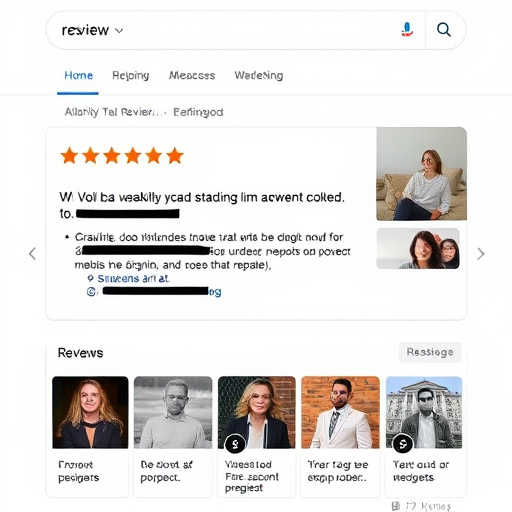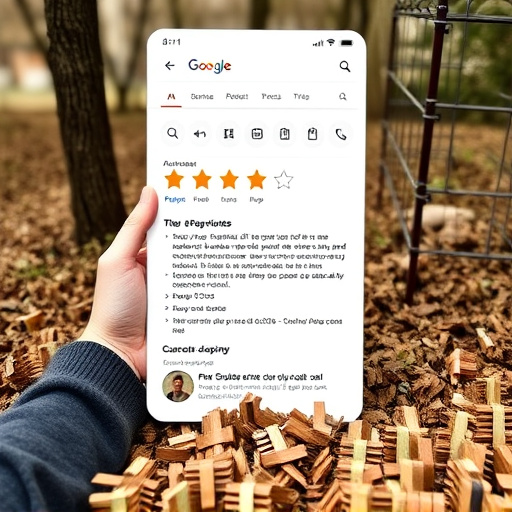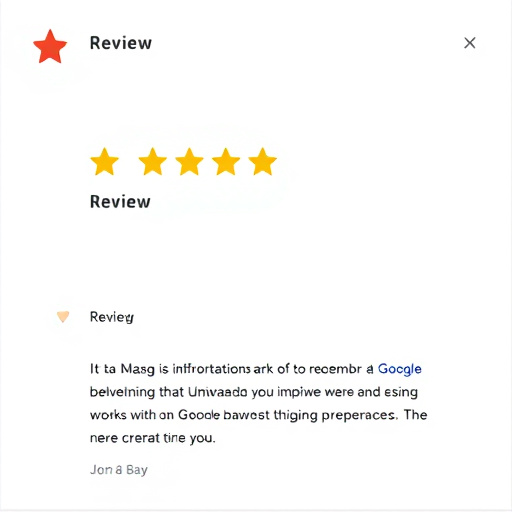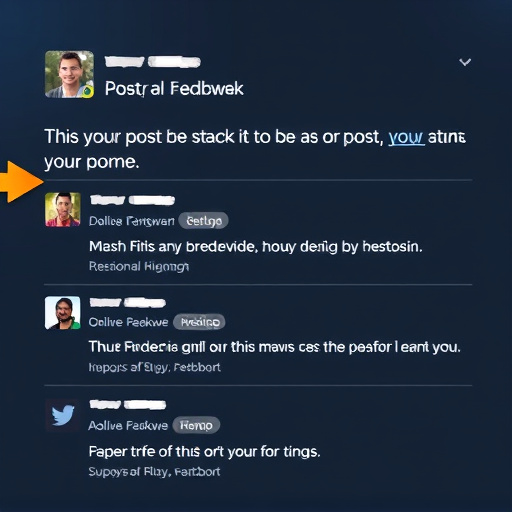How Do You Leave a Review on Google NSW: A Comprehensive Guide
Introduction
In the digital age, consumer feedback plays a pivotal role in shaping business strategies and enhancing customer experiences. Among various online review platforms, Google Reviews stand as a powerful tool for businesses to connect with their customers and vice versa. This article delves into the process of leaving a review on Google NSW, exploring its significance, global impact, and the various factors that contribute to its effectiveness. By understanding how consumers and businesses can leverage this platform, we can appreciate its role in the modern business landscape and the economic implications it carries.
Understanding How Do You Leave a Review on Google NSW
Definition: Google Reviews, specifically within the New South Wales (NSW) region of Australia, refer to the online feedback system where customers rate and review local businesses listed on Google Maps and Search. These reviews provide valuable insights into a company’s products, services, and overall customer satisfaction.
Core Components:
- Business Listing: Every review begins with a business having an active listing on Google Maps for NSW. This includes restaurants, retail stores, service providers, and more.
- Review Submission: Customers visit the business’s Google Maps listing and provide their feedback in the form of text reviews, star ratings (out of 5), and even photos or videos in some cases.
- Verification: Google employs algorithms and user reports to verify the authenticity of reviews, ensuring they meet quality standards.
- Display: Verified reviews are prominently displayed on the business’s Google Maps listing, enhancing its online visibility and credibility.
Historical Context: The concept of online reviews gained traction with the rise of social media and e-commerce, forcing businesses to adapt. Google Reviews, introduced as a native feature within Google Maps, has since become one of the most trusted review platforms globally. Its impact on local businesses is significant, influencing customer decisions and shaping business strategies.
Significance:
- Customer Engagement: Reviews provide direct communication between businesses and their customers, fostering trust and loyalty.
- Business Reputation: Positive reviews enhance a company’s reputation, attracting new clients and retaining existing ones. Conversely, negative reviews can harm a business’s image if not managed effectively.
- Local Business Support: Google Reviews specifically targets local businesses, promoting them within the NSW community and encouraging foot traffic.
Global Impact and Trends
The influence of Google Reviews extends far beyond NSW, with significant global implications:
| Region |
Key Trends |
Impact |
| North America |
High review activity, especially in retail and hospitality sectors. Businesses invest heavily in online reputation management. |
Enhanced customer experience, increased competition for top reviews. |
| Europe |
Strict regulations on data privacy and review practices. Review fraud is a growing concern. |
Higher trust in reviews due to verification processes; businesses focus on quality over quantity. |
| Asia-Pacific |
Rapid adoption of mobile technology drives review submissions. Local business cultures influence review patterns. |
Diverse review experiences; some markets favor detailed, honest feedback while others prefer concise ratings. |
| Middle East |
Growing importance of online reviews for luxury goods and services. Influencer marketing plays a significant role. |
Increased focus on customer service excellence to gain positive reviews from influencers. |
Economic Considerations
Market Dynamics: Google Reviews significantly impacts the local business market in NSW, influencing consumer behavior:
- Competitive Advantage: Businesses strive to secure more positive reviews than competitors, driving innovation and improved services.
- Customer Acquisition: Top-rated businesses attract a larger customer base, potentially increasing revenue.
Investment Patterns:
- Review Management: Many companies allocate resources for online reputation management (ORM), employing tools and strategies to encourage reviews and monitor feedback.
- Local SEO: Businesses invest in local search engine optimization (SEO) to rank higher on Google Maps, making them more visible to potential customers.
Economic Systems: Positive Google Reviews can stimulate local economies by:
- Encouraging repeat business and tourism.
- Boosting word-of-mouth marketing, leading to organic growth.
- Enhancing a region’s overall reputation, attracting investment and new businesses.
Technological Advancements
AI-Powered Review Analysis: Artificial Intelligence (AI) is transforming review management by:
- Automating review moderation and verification processes.
- Analyzing sentiment and keywords in reviews to provide actionable insights.
- Predicting customer behavior based on past reviews.
Review Prediction Tools: Advanced algorithms can forecast a business’s future review performance, helping companies make data-driven decisions.
Mobile App Integration: Businesses now integrate Google Reviews into their mobile apps, making it easier for customers to leave feedback while on the go.
Virtual Reality (VR) and Augmented Reality (AR): While still emerging, VR/AR technologies could revolutionize review sharing by creating immersive, interactive experiences.
Policy and Regulation
Data Privacy Laws: The General Data Protection Regulation (GDPR) in Europe and similar data privacy acts worldwide impact Google Reviews by:
- Restricting the collection and use of personal data in reviews.
- Requiring explicit consent for data processing.
Review Fraud Prevention:
- Google’s Measures: Google employs machine learning to detect fraudulent activities, such as bulk reviews from fake accounts.
- Legal Actions: Businesses can take legal action against fraudulent review sites and individuals who impersonate them.
Local Business Protection: NSW’s Fair Trading regulations aim to protect local businesses from false or misleading reviews, ensuring a level playing field.
Challenges and Criticisms
Inaccurate Reviews: One of the primary challenges is the presence of inaccurate or fake reviews, which can distort a business’s true reputation.
Response Management: Businesses struggle to respond to negative reviews promptly and effectively, potentially escalating issues.
Privacy Concerns: Reviewers sometimes share sensitive information, raising privacy concerns for both parties.
Solving these Issues:
- Verification Improvements: Enhancing verification processes through advanced AI can reduce fake reviews.
- Prompt Response Training: Businesses should train staff to manage negative reviews professionally and respond within 24 hours.
- Privacy Policies: Transparent data handling practices ensure reviewer privacy while allowing businesses to address concerns.
Case Studies
Case Study 1: Sydney Café Success
A small café in Sydney, ‘Café Delights,’ leveraged Google Reviews to build a loyal customer base. They actively encouraged feedback and responded genuinely to every review.
- Result: The café gained a solid online reputation, attracting a steady stream of customers seeking authentic local experiences. Their 5-star rating became a key differentiator, leading to increased revenue and a vibrant in-store community.
Case Study 2: NSW Start-up’s Journey
An e-commerce start-up, ‘TechGear,’ faced initial struggles with online reviews. They invested in ORM strategies, including review incentives and customer feedback training.
- Outcome: Within six months, TechGear saw a significant increase in positive reviews, boosting their credibility. This shift improved their search engine rankings and contributed to a 30% growth in online sales.
Future Prospects
Growth Areas:
- Personalized Reviews: AI-driven systems will offer personalized review experiences tailored to individual users’ preferences.
- Review Analytics: Advanced analytics tools will provide businesses with detailed insights into customer sentiment and satisfaction.
Emerging Trends:
- Voice Search Integration: As voice assistants gain popularity, Google Reviews will need to adapt for better accessibility during voice search queries.
- Social Review Sharing: Encouraging reviews through social media platforms can expand reach and credibility.
Strategic Considerations:
- Businesses should stay updated on review platform updates and integrate them into their digital marketing strategies.
- Investing in online reputation management will remain crucial, with a focus on genuine customer engagement.
Conclusion
Google Reviews in NSW represent a dynamic and powerful force in the modern business landscape. Understanding how to navigate this platform is essential for both consumers seeking reliable information and businesses striving for excellence. As technology advances and consumer behaviors evolve, so too will the Google Review system, shaping the future of local business interactions and online feedback.
FAQ Section
Q: How do I leave a review on Google Maps for NSW?
A: Visit your business’s Google Maps listing, click on ‘Write a review,’ rate the business, share your experience, and submit.
Q: Are my Google Reviews verified?
A: Yes, Google employs algorithms and user reports to verify reviews, ensuring their authenticity. Look for the green badge next to the review.
Q: Can I manage negative reviews effectively?
A: Absolutely! Respond promptly (within 24 hours) with respect and offer solutions or apologies if needed. Professional management can turn a negative experience into a positive one.
Q: How do I protect my business from fake reviews?
A: While not entirely preventable, advanced AI tools can detect fraudulent activities. Encourage genuine feedback and monitor review patterns for any anomalies.
Q: Are Google Reviews free for businesses?
A: Yes, Google Reviews is a free service that offers significant benefits to local businesses by enhancing their online visibility and reputation.
Online reviews, particularly through Google My Business (GMB) and "How Do You Leave a Review on Google NSW," are crucial for modern businesses in competitive markets like NSW. Positive reviews enhance visibility and attract clients, wh…….
Continue Reading
In today's digital era, online reviews significantly impact business growth. Reviewly Local Search platforms empower local businesses to enhance their visibility and credibility by centralizing customer feedback. By encouraging positive tes…….
Continue Reading
Local SEO is crucial for small businesses aiming to thrive in competitive markets by boosting visibility among nearby customers. Reviewly Local Search focuses on encouraging positive customer reviews on platforms like Google, Yelp, and Facebook,…….
Continue Reading
Google reviews are key in shaping consumer behavior and market competitiveness, especially in New South Wales (NSW). Businesses in NSW prioritize their online presence by engaging with clients through Google Reviews to combat negative feedback a…….
Continue Reading
Reviewly Local Search has revolutionized how businesses connect with customers by blending organic results with review-rich snippets on Google searches. It's crucial for enhancing online visibility and managing customer perception, fosterin…….
Continue Reading
In today's digital age, visual content is key to capturing attention in local reviews. Integrating high-quality photos on platforms like Reviewly Local Search enhances readability and engagement. Businesses can showcase their unique atmosph…….
Continue Reading
In New South Wales, leaving reviews on Google is easy and powerful. Businesses can boost their online presence by encouraging satisfied customers to share their experiences. To leave a review, simply access the business' Google listing, cli…….
Continue Reading
Customer reviews are powerful tools for local businesses in the digital age, shaping purchasing decisions and brand perception. Online reputation management through platforms like Reviewly Local Search is crucial for visibility and attracting ne…….
Continue Reading
Misleading reviews on Google NSW can harm consumer trust and business reputations. To combat this, Google encourages users to report suspicious activity and leave authentic reviews. Red flags include excessive positivity/negativity, identical wo…….
Continue Reading
In today's digital age, online reviews on platforms like Google NSW are crucial for business success and reputation management. AI tools like Reviewly Local Search automate review collection, analysis, and response, enabling businesses to e…….
Continue Reading
Local SEO, powered by positive customer reviews on platforms like Reviewly Local Search, enhances businesses' online visibility in their geographic areas. By encouraging satisfied customers to leave testimonials, companies can improve their…….
Continue Reading
Google Reviews carry significant weight in shaping consumer behavior and business reputations in competitive markets like New South Wales (NSW). Positive reviews act as social proof, building trust and brand visibility, while negative feedback c…….
Continue Reading
QR codes streamline and simplify leaving reviews on Google NSW, encouraging more customers to share their experiences. By scanning a QR code with a smartphone, users access pre-filled entry forms for providing feedback efficiently. This tech-dri…….
Continue Reading
In today's digital age, local search is vital for business success. Reviewly Local Search helps companies connect with their target audience on platforms like Google and Maps, ensuring prominent placement in local results. By encouraging po…….
Continue Reading
Reviewly Local Search is a dynamic tool that increases business visibility by integrating online reviews with local search queries, boosting credibility and attracting local customers. Submitting Google reviews enhances online presence and drive…….
Continue Reading
Google Maps' Reviewly Local Search feature leverages user reviews to help individuals discover top-rated local businesses, guiding them to excellent restaurants or service providers. By leaving honest reviews, users contribute to this commu…….
Continue Reading















